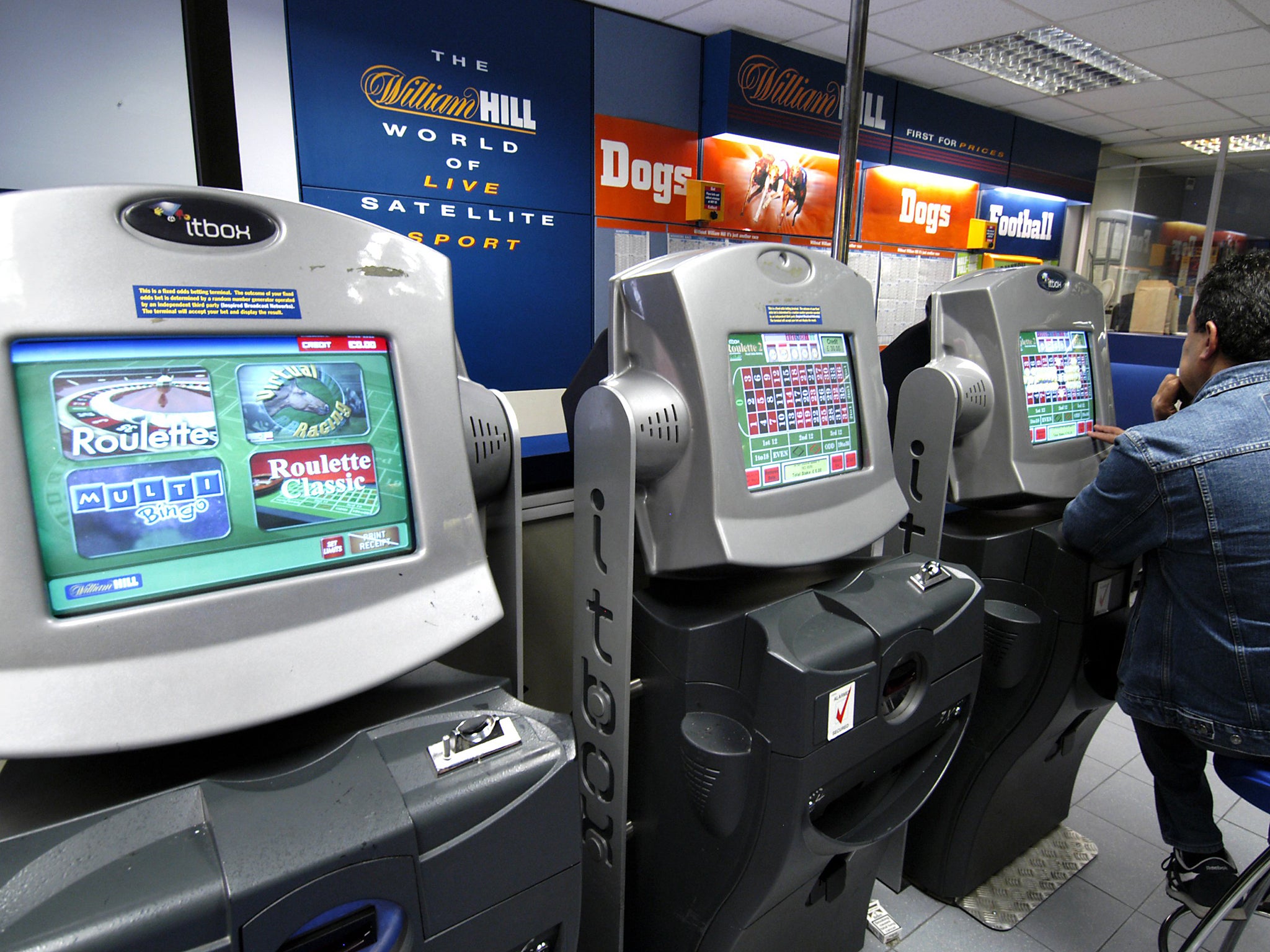William Hill's betting shops are plodding, raising questions about their future
The rapid move of the industry online will present new challenges for regulators but also the High Streets where they are sometimes the last man standing

Your support helps us to tell the story
From reproductive rights to climate change to Big Tech, The Independent is on the ground when the story is developing. Whether it's investigating the financials of Elon Musk's pro-Trump PAC or producing our latest documentary, 'The A Word', which shines a light on the American women fighting for reproductive rights, we know how important it is to parse out the facts from the messaging.
At such a critical moment in US history, we need reporters on the ground. Your donation allows us to keep sending journalists to speak to both sides of the story.
The Independent is trusted by Americans across the entire political spectrum. And unlike many other quality news outlets, we choose not to lock Americans out of our reporting and analysis with paywalls. We believe quality journalism should be available to everyone, paid for by those who can afford it.
Your support makes all the difference.Bookies love to use sports metaphors when they report results. In that spirit, perhaps we should describe William Hill’s latest trading statement as “a game of two halves”.
While the beleaguered company touted “growth in wagering and net revenue across all four divisions” the difference between the group’s UK betting shops and its online business couldn’t have been much more stark.
The latter saw a 16 per cent jump in revenues, the former, still the biggest contributor to the overall numbers, turned in a pedestrian 1 per cent increase for the 17 weeks to April 25.
Hill's is hardly alone with its high street struggles. Ladbrokes Coral has also lamented the challenging trading environment, and the going is only going to get heavier.
The results of a regulatory review into fixed odds betting terminals have been delayed until after the General Election. But the smart money is on further restrictions to maximum stakes, which could further crimp revenues from betting shops, when they are finally unveiled.
I’m not about to lament a crackdown on FOBTs, which have previously been described as the “crack cocaine of gambling”.
There’s nothing more depressing than witnessing the people that use them pouring money into them when you’re trying to watch a race, or some other sporting event, at the local turf accountant's.
The evidence that they are addictive, and leave a trail of social problems in their wake, has been mounting.
However, a FOBT crackdown, combined with the bookmakers' high street struggles, will almost inevitably result in closures.
Bookies have already been taking the axe to unprofitable shops. There will be more of that in the months ahead.
Much of the furore about the alleged concentration of betting shops in poorer areas a few years ago was fuelled by their visibility on High Streets where they were often the last man standing, alongside only the occasional takeaway or the odd newsagent.
Some of those last men are going to disappear.
The end of the betting shop is not yet nigh. But there are going to be less of them in future, perhaps a lot less.
And again it begs the question: What is going to replace them? No one seems to have much of a clue.
Meanwhile, gambling is increasingly becoming a pursuit undertaken via tablets and especially smartphones.
It largely takes place in private, away from the prying eyes of MPs, watchdogs and the media. However, it can very easily cause similar problems to those caused by FOBTs, and the staking limits that are currently the subject of such debate, simply don't exist.
Perhaps it is time for the focus of that debate to shift, and I say that as someone who both makes use of the industry's products, and has friends within it.
Join our commenting forum
Join thought-provoking conversations, follow other Independent readers and see their replies
Comments